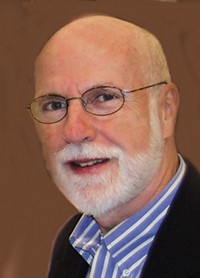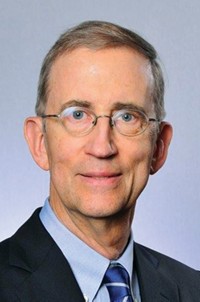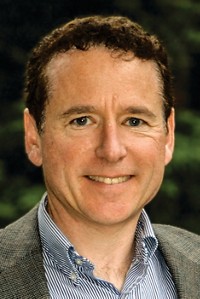Advertisement
Grab your lab coat. Let's get started
Welcome!
Welcome!
Create an account below to get 6 C&EN articles per month, receive newsletters and more - all free.
It seems this is your first time logging in online. Please enter the following information to continue.
As an ACS member you automatically get access to this site. All we need is few more details to create your reading experience.
Not you? Sign in with a different account.
Not you? Sign in with a different account.
ERROR 1
ERROR 1
ERROR 2
ERROR 2
ERROR 2
ERROR 2
ERROR 2
Password and Confirm password must match.
If you have an ACS member number, please enter it here so we can link this account to your membership. (optional)
ERROR 2
ACS values your privacy. By submitting your information, you are gaining access to C&EN and subscribing to our weekly newsletter. We use the information you provide to make your reading experience better, and we will never sell your data to third party members.
Materials
ACS Award In Analytical Chemistry
by Celia Henry Arnaud
January 2, 2012
| A version of this story appeared in
Volume 90, Issue 1

Sponsored by Battelle Memorial Institute
Nicholas Winograd, 66, the Evan Pugh Professor of Chemistry at Pennsylvania State University, is receiving this year’s award in recognition of his 40-plus years of research in surface science and secondary ion mass spectrometry (SIMS).
“Nick Winograd is the quintessential surface analytical chemist,” says Richard P. Van Duyne, a longtime friend and a chemistry professor at Northwestern University. They met as freshmen at Rensselaer Polytechnic Institute, where they both did undergraduate research with David Aikens and graduated in 1967. “Winograd is especially noted for his ability to merge advanced theoretical principles with novel experimental approaches to create powerful analytical methods,” Van Duyne says.
Winograd traces his love of instrumentation back to the oscilloscope kit his mother gave him in ninth grade. His tinkering led to a variety of construction projects and a ham radio license. “My research now is the same as it was then, in many ways,” he says. “The toys are just bigger.”
Winograd raced through graduate school at Case Western Reserve University in less than three years, working on electrochemistry with Theodore Kuwana and earning a Ph.D. in 1970. From there, he moved to Purdue University as an assistant professor.
Purdue was already a powerhouse in instrumentation development, and the university had acquired an electron spectroscopy for chemical analysis (ESCA) prototype from Hewlett-Packard. “My work in electrochemistry utilized solid electrodes, and the results were generally not reproducible, presumably due to some undefined chemistry,” Winograd says. “I got the bright idea of trying to elucidate that chemistry with ESCA, but the surface chemistry so enamored me that I never looked back.”
But ESCA was not as selective as Winograd would have liked. After hearing about Alfred Benninghoven’s surface mass spectrometry experiments, Winograd collaborated with R. Graham Cooks, also at Purdue, to write a proposal to add the appropriate instrumentation to ESCA. “It was successful, and I have enjoyed working with SIMS immensely ever since,” Winograd says.
Winograd “recognized that essential fundamental information required to perform credible surface analysis using SIMS was totally lacking,” Van Duyne says. “Rather than continuing along an empirical path, he combined forces with Barbara J. Garrison to create a detailed molecular dynamics computer simulation model that could be employed to provide an atomic view of molecular desorption.”
Winograd credits Garrison, a computational chemist to whom he has been married since 1978, as one of his major influences. “She is a deep thinker who kept me from making very many mistakes and gave me plenty of ideas.” In 1979, they moved to Penn State, where they have been since.
In recent years, Winograd has turned to biological applications of SIMS. “I’m really focused on trying to get a 3-D mass spec image of a single biological cell, with enough interesting chemical information to yield some new biology,” he says. “In the beginning, it was a pipe dream really—not enough sensitivity and lots of other problems. Today, with new instrumentation and new ion beams, we are closer than ever to getting something meaningful.”
Winograd will present the award address before the ACS Division of Analytical Chemistry during the fall national meeting in Philadelphia.





Join the conversation
Contact the reporter
Submit a Letter to the Editor for publication
Engage with us on Twitter